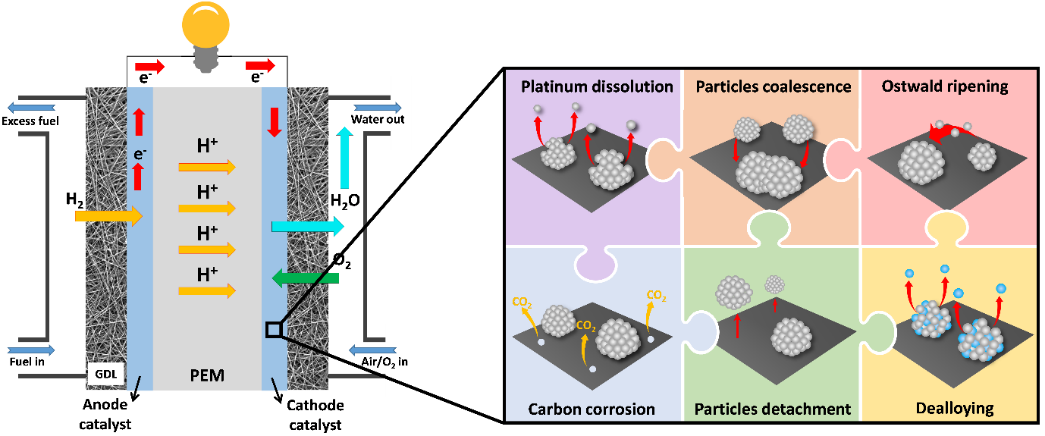
Student: Mohandas Sandhya Athira lekshmi
Supervisor: Mgr. Ivan Khalakhan, Ph.D.
Status: Assigned
Abstract:
Proton exchange membrane fuel cells (PEMFC) are on the verge of creating a vast revolutionary change in the field of electricity. However, other than activity and cost, durability of the catalyst is one of key issues for its successful commercialization. Due to the corrosive conditions of PEMFC cathode, degradation of catalyst is reportedly inevitable and is resulted in fuel cell performance deterioration over time of usage. However, the full knowledge about the structure and composition changes of catalysts under the conditions of fuel cell operation remain very scarce.
In this doctoral work catalytic layers will be prepared using the magnetron sputtering technique. The simulation of the fuel cell operating conditions will be performed in the electrochemical cell and the behavior of the catalysts will be investigated in-situ using electrochemical atomic force microscopy (EC-AFM) and rotating disc electrode (RDE) techniques. Ex-situ methods of electron microscopy (SEM, TEM), photoelectron spectroscopy (XPS) and X-ray diffraction (XRD) will also be used for further catalyst characterizations. In parallel, experiments will be carried out at SAXS beamline at Elettra synchrotron in Italy using in situ grazing-incidence small-angle scattering (GISAXS) using a specially designed electrochemical cell.
The aim of the work is to establish the connections between morphological, structural and compositional degradation of a catalyst and operation conditions of the fuel cell. The work will include two months per year stay in Italy at Elettra synchrotron.
